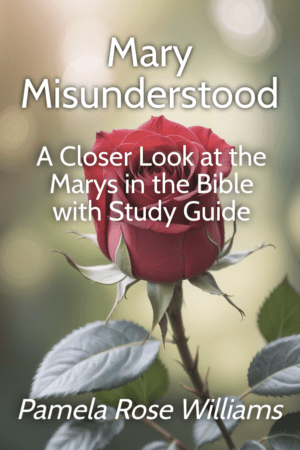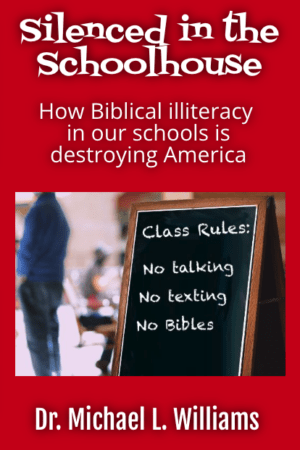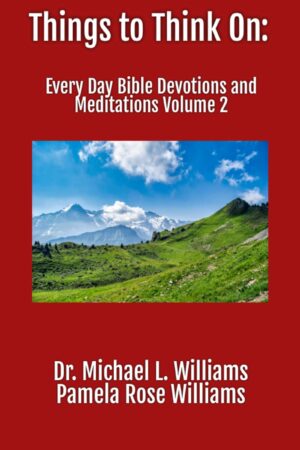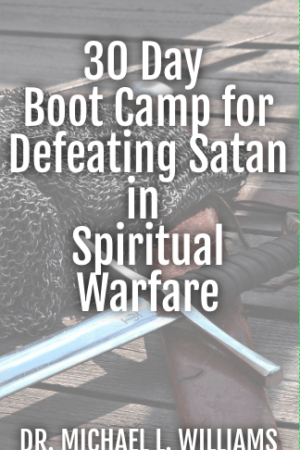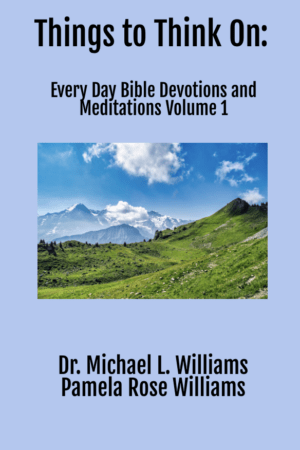With the extensive network of public and private schools in America, some people wonder why some Christians homeschool their children. To answer this question, we need to take a quick look at the Christian homeschooling movement and see what the Bible has to say about the education of children.
According to the Worldwide Guide to Homeschooling, in 2002 an estimated 1.6-2.0 million children were being taught at home by their parents. Since that time the number of families choosing to homeschool has grown at an estimated annual rate of 7-15 percent. This exponential rate of growth has resulted in a movement that is making a great impact on the education of children in America.
According to a poll conducted by the Home School Legal Defense Association (HSLDA) in 2002, of 989 respondents, 49% said religious conviction is the main reason they continue homeschooling; 15% positive social environment; 14% academic excellence; 12% specific needs of child; 5% curriculum choice; and 5% flexibility. 79% of respondents were HSLDA members; 21% were not.
The modern homeschooling movement started in the 1970’s and 80’s when parents began to question if the government and private educational institutions were best for their children. Looking back in history, they knew that children were educated at home or in small groups for nearly 125 years since the founding of the nation and longer before that. Many of our nations’ founders, leaders, and innovators started out as children who were schooled at home.
According to the book Silenced in the Schoolhouse, written by this author, in the 1800’s states began to move toward mandatory attendance at government schools. With compulsory attendance laws, came changes in attitudes toward teaching the Bible. Eventually, with U.S. Supreme Court decisions in the mid 1900’s, public schools abandoned Christian education and embraced educational models based on secular humanism.
This resulted in a downward trend not only in educational achievement amongst the general populace, but also a skyrocketing of the acceptance of socially inappropriate behaviors that just a few short years earlier had been unheard of. The reaction to these trends by many parents resulted in the Christian private school movement, followed by the homeschool movement.
Today, in the United States, homeschooling is legal, but it did not come without a fight. Most curriculum suppliers would not sell their educational materials to parents. Teachers questioned the appropriateness of parents teaching their own children without teaching credentials. Likewise, local schools and legislators often interfered with parents despite laws recognizing the right of parents to educate their own children. This often resulted in parents going to jail
While few states specifically prohibited homeschooling, legislators and school officials acted as if they had. Homeschooling parents faced threats of jail time and having their children removed from their home. Some were arrested and taken to court. Their children often ended up being forced to attend schools that exposed them to things their parents strongly objected to. Meanwhile friends and relatives questioned their motives and intentions; believing that the lives of the children were being ruined or they were being socially isolated.
With time, as laws protecting home schoolers were passed and cases were won in the courts, homeschooling took off. Today, there are numerous curricula designed for home schoolers as well as local and national homeschool support organizations. With these changes, also came results.
On average students in grades 1-4 were found by educational policy analysts to perform one grade level higher than their public and private school counterparts. Likewise, they found that by grade 8, the average homeschooled child performed four grade levels above the national average. In addition, home schoolers have dominated academic competitions such as national geography and spelling bees.
In the Christian schools and homeschool associations, which this author has served, students that had completed 8th grade in highly regarded homeschool curriculum in all subjects scored above the high school graduate level on Stanford Achievement Tests Series.
Although there is an abundance of information on the effectiveness of homeschooling when done properly, the more important question about all of this is, what does God say about it? The answer to this question is why many devout Christians take on the task and responsibility of personally educating their children.
The following explanation of the Biblical roots of education is provided from the book Silenced in the Schoolhouse, Chapter Six:
Biblically speaking, the first place historically that we see the education of humanity is found in the book of Genesis. Although some teaching can be found in chapter one, Genesis 2:15-25 is the first account of the Biblical roots of education:
{15} And the LORD God took the man, and put him into the Garden of Eden to dress it and to keep it. {16} And the LORD God commanded the man, saying, Of every tree of the garden thou mayest freely eat: {17} But of the tree of the knowledge of good and evil, thou shalt not eat of it: for in the day that thou eatest thereof thou shalt surely die. {18} And the LORD God said, It is not good that the man should be alone; I will make him an help meet for him. {19} And out of the ground the LORD God formed every beast of the field, and every fowl of the air; and brought them unto Adam to see what he would call them: and whatsoever Adam called every living creature, that was the name thereof. {20} And Adam gave names to all cattle, and to the fowl of the air, and to every beast of the field; but for Adam there was not found an help meet for him. {21} And the LORD God caused a deep sleep to fall upon Adam, and he slept: and he took one of his ribs, and closed up the flesh instead thereof; {22} And the rib, which the LORD God had taken from man, made he a woman, and brought her unto the man. {23} And Adam said, This is now bone of my bones, and flesh of my flesh: she shall be called Woman, because she was taken out of Man. {24} Therefore shall a man leave his father and his mother, and shall cleave unto his wife: and they shall be one flesh. {25} And they were both naked, the man and his wife, and were not ashamed.”
God was the first teacher of humanity. As the first teacher, He was the originator of the information to be taught. Therefore, in verse fifteen, God began His teaching by putting Adam in the garden to dress it and keep it. Since Adam had just been created, God gave him the task of working in the garden to obtain food. Although Scripture does not explicitly tell us, there had to have been some knowledge passed from God to Adam as to how and why he was to accomplish this task.
In verses sixteen and seventeen, God gave Adam specific instructions as to what he could and could not eat and the Spiritual consequences. Again, God is passing knowledge through teaching in what Adam was to do and why he was to do it. It makes one wonder if Adam knew how significant this teaching would be in the affairs of humanity.
In verses eighteen through twenty-three, God told Adam that He needed a helper that was suitable for him. To do this, He had Adam give names to all the created earthly beings. In the process, God taught him there was not anything created on Earth that would make a suitable helper for him. Therefore, God caused Adam to fall asleep and He took one of Adam’s ribs. From the rib, He created a woman and brought her to him. Following the instructions God had previously given him, Adam called her “woman.” In making this statement, Adam not only was calling her a woman before God but was also communicating the same to the woman.
In verses twenty-three through twenty-five Adam taught the woman what God had taught him concerning marriage. We have no other reference of what was said, but we know from the events in Genesis Chapter 3 that there was some miscommunication between Adam and the woman, later named Eve. This is found in Genesis 3:1-5 as follows:
(Genesis 3:1-5 KJV) “Now the serpent was more subtle than any beast of the field which the LORD God had made. And he said unto the woman, Yea, hath God said, Ye shall not eat of every tree of the garden? {2} And the woman said unto the serpent, We may eat of the fruit of the trees of the garden: {3} But of the fruit of the tree which is in the midst of the garden, God hath said, Ye shall not eat of it, neither shall ye touch it, lest ye die. {4} And the serpent said unto the woman, Ye shall not surely die: {5} For God doth know that in the day ye eat thereof, then your eyes shall be opened, and ye shall be as gods, knowing good and evil.” (Emphasis added)
In verse one, Satan asks Eve the question: “hath God said; Ye shall eat of every tree of the garden?” In verses two and three, she gives Satan her answer. We have to remember that Eve was not created when Adam was told what could be eaten and what could not be eaten. Based on her response in verses two and three, we can see there might have been a problem in what Eve had learned because she says, “neither shall ye touch it, lest ye die.”
Nowhere do we see that there was any mention of touching the food. Therefore, we see that the first cultural conflict over Spiritual matters began with a challenge over what God had said. That being said, it also involved what Adam had said because Eve was not created when God told Adam what was expected.
So far, we have seen that the first educational method was oral teaching from God to man and man to man (woman). Likewise, considering that a family begins with the marriage between a man and a woman, as in Adam and Eve (Genesis 2:24-25), it can be noted that the family is where education started. This is a foundational concept to remember as there are two competing philosophies concerning who has the authority and responsibility of educating children. As time would progress and populations increase, these two distinct philosophies of education would be revealed with differing results.
Biblical history demonstrates that oral teaching was the primary method used for education in the family with the parents teaching their children. Parental oral teaching continues today, but not as extensively as in years past, especially in western cultures, because of numerous reasons that will be discussed later. Nevertheless, oral teaching, called oral tradition by Hebrews, still plays an important role today in some cultures.
As we saw in this Genesis account, oral teaching was primarily used to teach man’s relationship to God and God’s expectations of man. It was also used to teach practical skills for living and survival. Since the Bible says that Adam was the son of God (Luke 3:38), we can see in the chapters to follow that parents typically taught their children so that they could pass along the knowledge they had acquired to the next generation.
Unfortunately, the desired results of training did not always have the desired result in the children. In Genesis chapter four, it can be seen that the rebellion over what God required of man continued to the next generation as told in the account of Cain and Abel, the first two sons of Adam and Eve.
To understand the issue it has to be remembered that after sinning, Adam and Eve realized they were naked (Genesis 3:7) so God killed an animal or animals and made coats of skins to cover their nakedness before He expelled them from the Garden of Eden. This is important in the fact that God requires the shedding of blood for the forgiveness of sin. (Hebrews 9:22)
In the account of Genesis Chapter 4, Cain was a tiller of the ground and Abel tended sheep. When they brought their sacrifices to God, Cain brought crops and Abel brought his best firstborn calf from his flock. God was pleased with Abel’s sacrifice because his sacrifice involved the shedding of blood. (Hebrews 11:4) Cain’s sacrifice did not involve the shedding of blood so it was not acceptable to God. Because of this, Cain got depressed and angry so God confronted him about the issue. Later, Cain was still angry about the issue and when he found himself alone in a field with Abel, he killed him.
Because Cain killed Abel, God cursed Cain by sending him into the wilderness. However, before God sent him out, Cain pleaded with God for protection from those who would desire to kill him. God made the decision to put a mark on Cain that would notify anyone wanting to kill Cain that they would suffer seven times the vengeance for harming him.
In a short unfortunate side note, it can be said that man has a long history of trying to redefine Biblical truth with man-made wisdom. As stated previously, the “mark” was placed on Cain as a warning to others. There has been a widespread belief throughout history that this mark was black skin. Numerous people throughout history and to this day when trying to justify racism have used this belief. A simple study of Scripture reveals that this cannot be true.
We find that after being cursed by God, Cain left and went to live in a land of Nod with his wife and had a family (Genesis 4:16-17). There his descendants followed in his example in their disregard for righteousness. In the sixth generation down from Cain was a man called Lamech who was the first person to have more than one wife. He murdered two men and mocked God by saying, “If Cain shall be avenged sevenfold, truly Lamech seventy and sevenfold.” (Genesis 4:24) When tracing Cain’s lineage down to the flood, it can be found that they consisted of people who were consistently evil and wicked (Genesis 6:5).
After the murder of Abel by Cain, Adam and Eve had another son, Seth, who grew up and married. It is told in Genesis 4:26 that Seth had a son and “he called his name Enos: then began men to call upon the name of the LORD.” From this lineage, it can be seen that his descendants lived righteously. In the sixth generation down from Seth was a man called Enoch who “walked with God” (Genesis 5:22, 24) and God took him. This Godly lineage eventually produced Noah. Genesis 6:8 says that he (Noah) “found Grace in the eyes of the Lord” and in verse nine: “Noah was a just man and perfect in his generations, and Noah walked with God.”
When you compare the two lineages of Seth and Cain, Cain’s lineage was unrighteous and evil and Seth’s lineage was righteous and blessed. The two lineages were separate from each other and their walks with God were totally opposite. The days in which Noah lived are described in Genesis 6:11-13:
{11} “The earth also was corrupt before God, and the earth was filled with violence. {12} And God looked upon the earth, and, behold, it was corrupt; for all flesh had corrupted his way upon the earth. {13} And God said unto Noah, The end of all flesh is come before me; for the earth is filled with violence through them; and, behold, I will destroy them with the earth.”
The interesting thing about this is that except for Noah’s immediate family, all his ancestors died before the flood. Cain’s descendants however were numerous and died in the flood. Cain’s descendants are the ones that God was describing in verses eleven through thirteen.
After the ark was built, Noah’s immediate family was saved and everyone else was destroyed according to account in Genesis 6:17-18 and 1 Peter 3:20:
(Genesis 6:17-18) “And, behold, I, even I, do bring a flood of waters upon the earth, to destroy all flesh, wherein is the breath of life, from under heaven; and everything that is in the earth shall die. {18} But with thee will I establish my covenant; and thou shalt come into the ark, thou, and thy sons, and thy wife, and thy sons’ wives with thee.”
(1 Peter 3:20) “Which sometime were disobedient, when once the longsuffering of God waited in the days of Noah, while the ark was a preparing, wherein few, that is, eight souls were saved by water.”
Since all of Cain’s descendants were destroyed in the flood, and only the descendants of Seth, Noah’s family, were saved, the argument that black skinned people are descendants of Cain today “does not hold water.” It is a factual impossibility.
It is sad to imagine how many acts of racism over the years have been committed by people who claim to be Bible believing Christians thinking they were justified in what they believed based on what could be called a Biblical “urban myth.” May it suffice to say that if people were Biblically literate, many presumptions about Biblical events would be discounted quickly by letting Scripture prove Scripture.
The main point to be made of this account is that there was a big difference between the lineages. When considering Lamech’s attitude concerning marriage to more than one wife and the taking of human life, it demonstrates explicitly the effects of a culture when God’s Word is despised. In the end, those who cursed God were destroyed and those who called on the name of the Lord were saved from God’s wrath.
Another interesting point to consider is when you plot out the generations from Adam to Noah, there are ten total. Considering that the life span was hundreds of years, many generations were alive at the same time. This would contribute immensely to the accuracy of what was being passed from generation to generation and provided for an extensive family support system. This support system would greatly contribute toward making sure the children were immersed in God’s ways.
After the flood, Seth’s lineage continued in Genesis through the calling of Abram to be the father of the Hebrew people. With the calling of Abram, later called Abraham, oral tradition took on an even more important role. Important historical events were preserved, and God’s promises were reinforced. It must be understood that this was not merely the telling of stories to children but was an intensive method of training that was ingrained in Judaism.
During this same historical period, Chinese civilization became very prominent in eastern Asia. They too believed in passing down their history through oral tradition, but for different reasons. For the Hebrews, the passing down of faith and history orally as an educational method was central to their cultural identity and relationship with God. For the Chinese, their educational focus “was generally to preserve the past as a way to honor ancestors to the point of worship.”[i]
The Chinese education model focused more on the horizontal relationship between people and extolled noble living and personal virtue. The Hebrew education model always focused first on the vertical relationship with God before the horizontal relationship with man.[ii] We will see later how these two philosophies of education would permeate humanity and result in the differing educational models we have today. While each educational model has roots that extend back thousands of years, these roots are so deeply embedded in their respective cultures that they are still a major influence today.
Another difference between the two cultures was the attitudes concerning sin. Frederick Mayer describes it as follows:
“While in Oriental religion, the failings of man are mostly regarded as the products of ignorance, in Hebrew religion, sin is viewed as a conscience of the will of God—an action which merits harsh punishment. This sense of sin is intensely emotional in Hebrew religion and it results in the abasement of the individual before his creator.”[iii]
It is understandable how attitudes concerning sin would be different if the beliefs about God were different. If you believe in a God that demonstrated through miracles, signs, wonders, and speaking to man that He is all powerful, all knowing, perfect, holy, and the creator of everything; then your attitude toward sin would tend to be in keeping of what God taught you.
On the other hand, if you believe that there is no supreme being and your relatives were solely responsible for what happened in their history by the deeds they performed, then your standard for holiness and object of worship would be your relatives. If your god and object of worship was your relatives, your attitudes toward sin and holiness would be reflective of the imperfections and flaws of your relatives.
Likewise, people would premise their beliefs toward the importance of their behavior on the notion that good things happen to humanity by good people and bad things happen to humanity by bad people. In doing so, their struggle to impact humanity would be motivated toward trying to be a good person so that they would be a positive impact on humanity and honored after they died.
No matter what system to which someone subscribes, if their standard of godliness is based on the lives of other people, then they only have to live up to what other people have done. Unfortunately, today, that is what most people base their standard upon for godliness. The problem with this thinking is that the standard then becomes based upon what popular opinion says is acceptable and it can have devastating effects.
A case in point would be that the Nazi Reich Cabinet, using a twisted line of man-made reasoning, approved the actions taken by Adolph Hitler in the 1930’s and 40’s. Their approval resulted in the Nuremberg Laws, which made the actions taken against Jews official German state policy and a “legitimate self-defense by the state.”[iv]
The oral tradition method of teaching by the Hebrews eventually was supplemented with written Scripture and other writings. First was the Torah, the first five books of the Bible written by Moses. Then was the Mishna, a second century collection of writings documenting the oral traditions passed down from generation to generation. The Mishna was later combined with a group of commentaries called the Gemara to become the Talmud. Together all these writings are still used daily by observant Jews.[v]
When following history through Scripture, it can be clearly seen that the development of a relationship between man and God relied on several factors. First, was recognizing that God was who He was and would reward those that sought Him. Hebrews 11:6 tells us this: “But without faith it is impossible to please him: for he that cometh to God must believe that he is, and that he is a rewarder of them that diligently seek him.”
Second, was getting to know God by being immersed in His Word. In Deuteronomy 6:4-9 a clear commandment concerning God’s Word is given:
Deuteronomy 6:4-9 “Hear, O Israel: The LORD our God is one LORD: {5} And thou shalt love the LORD thy God with all thine heart, and with all thy soul, and with all thy might. {6} And these words, which I command thee this day, shall be in thine heart: {7} And thou shalt teach them diligently unto thy children, and shalt talk of them when thou sittest in thine house, and when thou walkest by the way, and when thou liest down, and when thou risest up. {8} And thou shalt bind them for a sign upon thine hand, and they shall be as frontlets between thine eyes. {9} And thou shalt write them upon the posts of thy house, and on thy gates.”
In this series of verses, it is clear that it was the role of parents to totally immerse their children in God’s Word so that they would come to love Him. This was done by teaching them diligently (verse 7); talking about them when they are sitting down; walking somewhere; when they go to bed; and when they get up.
The purpose for immersing one’s self in God’s Word is explained in Psalm 119:11: “Thy word have I hid in mine heart, that I might not sin against thee.” Also, in Psalm 119:104-105: “Through thy precepts I get understanding: therefore I hate every false way. {105} NUN. Thy word is a lamp unto my feet, and a light unto my path.”
These verses clearly point out that God’s Word influences attitudes and behaviors. They also make it clear that parents are responsible for making this happen. Today, most parents, including Christian ones, do not take this responsibility seriously. Because of this, many of our youth grow up not knowing God and it has an adverse effect on our culture.
In addition to teaching, it was understood that parents were to “bind them for a sign upon thy hand,” (verse eight) meaning that they were to make sure that everything they and their children did, acknowledged God. They were also to “be as frontlets between thine eyes,” meaning that they should always remember what God had taught them.
One group, however, taught that these verses literally commanded them to place a small black box and straps, commonly called phylacteries, with numerous Scriptures on their forehead and on their hand. Using Scripture, one can prove that these verses did not literally mean to put these verses in a box; they were meant figuratively as follows:
(Song of Songs 8:6) “Set me as a seal upon thine heart, as a seal upon thine arm: for love is strong as death; jealousy is cruel as the grave: the coals thereof are coals of fire, which hath a most vehement flame.”
(Proverbs 1:8-9) “My son, hear the instruction of thy father, and forsake not the law of thy mother: {9} For they shall be an ornament of grace unto thy head, and chains about thy neck.”
(Proverbs 3:1-3) “My son, forget not my law; but let thine heart keep my commandments: {2} For length of days, and long life, and peace, shall they add to thee. {3} Let not mercy and truth forsake thee: bind them about thy neck; write them upon the table of thine heart:”
(Proverbs 6:20-22) “My son, keep thy father’s commandment, and forsake not the law of thy mother: {21} Bind them continually upon thine heart, and tie them about thy neck. {22} When thou goest, it shall lead thee; when thou sleepest, it shall keep thee; and when thou awakest, it shall talk with thee.”
(Proverbs 7:1-3) “My son, keep my words, and lay up my commandments with thee. {2} Keep my commandments, and live; and my law as the apple of thine eye. {3} Bind them upon thy fingers, write them upon the table of thine heart.”
Those that literally interpreted Deuteronomy 6:4-9 began the wearing of phylacteries sometime between the second century B.C. to the first century A.D.[vi]. There is no Biblical reference to phylacteries by name other than where Jesus referred to those that wore them in Matthew 23:5.
Finally, God commanded that His teachings were to be written on the “post of thy house and on thy gates” (Deuteronomy 6:9) as a visual reminder to those inside the house and those outside the house. This was to ensure that everyone knew that that home was a Jewish home. The same principle still applies today. When entering the house of a Christian, is it obvious that the house belongs to a Christian? Does it look like any other person’s home? It is important that our homes reflect who we are and what we believe.
Since the Biblical roots of education started with God and the Hebrews in the Old Testament of the Bible, it stands to reason that one can find these same principles in the New Testament. The practical application of these areas will be covered in more detail later, but for now, we will briefly cover what is taught.
First, the New Testament teaches that the individual is responsible to make sure they are learning God’s Word and sharing what they learn with others. They do this by living their lives according to God’s Word (Luke 4:4); teaching others (1 Timothy 4:6-11); and studying and teaching God’s Word (2 Timothy 2:15-16, 24). Other concepts are taught in 1 Corinthians 3:1-11 where the Bible teaches that the foundation for everything, we do should be Jesus Christ. In Luke 14:26-35 the Bible teaches that for us to be a disciple (student) of Christ, we must forsake everything and make learning from Him our priority. This speaks volumes to us about our priorities when we cannot find time to have a daily devotion.
In the Old Testament, we have clearly seen where parents were commanded to teach their children. The New Testament in Galatians 4:1-2 adds to this when it says: “Now I say, That the heir, as long as he is a child, differeth nothing from a servant, though he be lord of all; {2} But is under tutors and governors until the time appointed of the father.” (emphasis added) This indicates that parents may employ tutors and governors to help in the training.
Note that this does not mean parents are to give up their training responsibility to others. Too often, parents think that it is the schools’ job to educate their children. It must be understood that Biblically, it is the parent’s responsibility. The school should only be supporting the parents in their role as educators, not replacing them. We will discuss this later as this is one area of many where attitudes toward education have changed from the time of the founders.
The New Testament also teaches that the church is responsible for education. 1 Timothy 3:2 says that pastors have a responsibility to teach. Hebrews 13:7, 17 says that teachers must set a positive example. Acts 2:42 says that churches must teach doctrine. 2 Timothy 2:1-2 says that teachers should be trained in what to teach others.
When all is said and done, the New Testament teaches that two main outcomes should be the focus of education. First, Ephesians 4:11-16 teaches that education should equip the saints, edify and strengthen the church, reflect the love of Christ, and cause people in the church to work together. Second, Romans 12:1-2 teaches that believers should be inspired to serve and to be conformed to God’s will.
What we see then, is that it was God’s intention for His people to have their lives immersed in a relationship with Him, to be a positive testimony to others, and to pass this on to their children. Likewise, it was expected that their relationship with God would enable them to have wonderful relationships with each other.
This can still be demonstrated today when observing truly devout Christian homeschooling families; their lives are different than most. They do things differently, their family relationships are closer, and they place a strong emphasis on educating their children Biblically. The end result is that they pass on the faith and values taught in God’s Word and are useful, productive members of society. It is for these reasons and many others that some Christians homeschool their children.
[i] Gangel, Kenneth O. and Benson, Warren S., p. 20.
[ii] Ibid.
[iii] Mayer, Frederick, pg. 80.
[iv] Derechos Human Rights and Nizkor, Equipo, https://www.derechos.org/Anizkor/nuremberg/judgment/cap3.html
[v] Rich, Tracey R.,https://www.jewfaq.org/torah.htm
[vi] Rekhavi, Hakham Meir Yosef, https://www.karaites.org.uk/phylacteries.shtml

Dr. Michael L. Williams, Head of Ministry Operations and Technology at Christianity Every Day, is a Christ-centered Author, Educator, Biblical Counselor and Advisor. He is ordained in Pastoral Ministry and formerly the founding Pastor of Selah Mountain Ministries, a church started along with his wife, Pamela Rose, after several years of pastoral experience and training in Biblical Counseling. Selah Mountain provided Biblical counseling and education to the public on how to overcome life issues Biblically on topics such as anger management, marriage, addictions, and other subjects – often referred to as mental illnesses. To learn more about Dr. Mike visit the About page.










